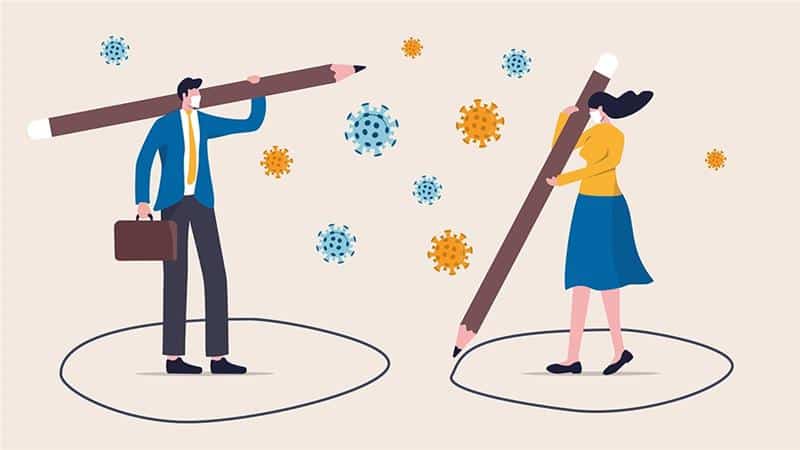We are HEAR for you. Our doors re-opened May 11th. We spent the six weeks at home working on several projects that would have never been completed, had we been busy in the office seeing patients. I am glad we had the time to focus on those projects, but we are glad to be back in the office, seeing each other and our patient’s… in person.
Social distancing rules in the wake of COVID-19 have made an indelible impact on communities across the United States. While we all agree that preventing the transmission of the novel coronavirus is essential, it’s also critically important we don’t lose the vital connections that help keep us all healthy. As you know, people with hearing loss are especially at risk for the detrimental effects of social isolation – and that has been the case long before this pandemic erupted.
During the stay-at-home order I questioned why “social isolation” was the coined terminology when it really is “physical isolation”…food for thought? There are many different avenues to socialize when we cannot be physically together. I came across an article from Hamilton Captel, a provider of captioned telephones I would like to share with you regarding this topic.
3 important facts about staying connected during COVID-19
While the physical health impacts of Coronavirus – COVID-19 – are becoming well-understood, and the socio-economic impacts are developing, one aspect that remains under-examined is the mental health impact of how the country is responding to the outbreak. In particular – the principle of social distancing.
Stay-at-home, shelter-in-place and more stringent quarantine policies have been enacted, affecting the majority of the population across the country. While these remain in effect, some level of social distancing has become the new norm for many people – especially those with compromised immune systems or who are over the age of 60. With social distancing practices (avoiding groups, maintaining physical distance from other people, staying at home, etc.) comes the associated risk of prolonged social isolation.
Here are three important things to know about social isolation.
- Social isolation has consequences
Recent studies reveal chronic social isolation is strongly connected to other physical and mental health conditions – in fact, a meta-analysis of scientific data revealed that chronic social isolation increases the risk of mortality by as much as 29%.
- People with hearing loss are particularly at risk
Individuals with hearing loss have an increased risk of social isolation – even prior to the COVID-19 outbreak. A Dutch study of adults aged 18-70 revealed that for every decibel drop in hearing perception, the odds of becoming severely lonely increase by 7%. An additional challenge is that often times hearing loss is so gradual that people who experience it don’t realize the breadth of its progression – in many cases, for as long as 7 years.
- There isn’t a singular fix for hearing loss – or for staying connected
Almost 30 million U.S. adults could benefit from the use of hearing aids – yet only a fraction have ever used them.While hearing aids certainly help in many cases, they are only part of the picture when it comes to helping people with hearing loss stay connected to others and the world around them. Technology provides many other mechanisms that allow people to stay engaged, ranging from everyday platforms like text messaging and social media to more dedicated assistive devices like captioned telephones.
It’s clear that “physical distancing” has the potential to increase the risk of prolonged social isolation. Regardless of how, the ability for all of us to maintain connections in our lives is important to our overall health, and whether you have hearing loss – or love someone who does – staying connected matters more now than it ever has before.
So give Beth or Jamie a call at (704) 212-2376 to schedule an appointment and let us help you stay connected or get re-connected. Jane and I look forward to seeing you soon.

